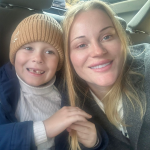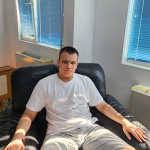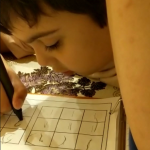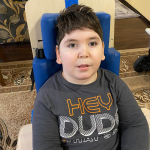Imbalance of Brain Activity in Autism
It is established that the signal imbalance of excitation and inhibition in autistic boys and girls deviates from the norm. This imbalance affects the functionality of the prefrontal medial cortex, which is responsible for processing communicative information from society. Girls exhibit a less pronounced imbalance than boys and can more easily camouflage or compensate for the communicative imperfections of ASD. Boys face greater challenges in this regard, creating a stronger need to address the signal imbalance.
Brain Imaging Studies on Autism
Researchers investigating how brain disorders in autism affect the processing of social and communicative information conducted brain imaging studies. The results were published in the eLife journal. Knowledge about diagnosing brain imbalances in ASD contributes to more effective treatments.
The Role of Gender in Brain Imbalance
In exploring how the autistic brain functions, scientists concluded that the imbalance of brain activity involves increased excitability of nerve cells located in the prefrontal medial cortex. These disorders likely depend on gender, as mutations originate in genes and chromosomes influenced by androgenic hormones characteristic of males.
Manifestations of Signal Imbalance in Autism
- Increased nervous excitability
- Increased behavioral activity, alternating with periods of complete apathy
- Epileptic seizures
- Convulsions
- Stereotypical body movements
Key Findings of the Research
Returning to the conducted research, it was led by Stavros Trakoshis, an Italian scientist from the Center for Cognitive Systems and Neurobiology. The team, studying brain imbalances in autism, used 3D imaging diagnostic equipment. They observed that girls and women experience less imbalance of inhibition and excitation in the medial cortex, making them less likely to suffer from autism and experience less severe symptoms compared to boys and men.
According to the study, an imbalance of signaling connections in autism could form the basis for developing a completely new and more effective approach to treatment — an approach already in use today.
Stem Cell Therapy for Autism
A special treatment for autism that restores normal brain activity is stem therapy. This method is suitable for both boys and girls. Most importantly, it is organically compatible, free of severe side effects, and highly effective. Parents of many children who have undergone stem cell treatment for autism spectrum disorder report that their kids learn, develop, and communicate much better. This indicates that cellular correction of childhood autism successfully eliminated the imbalance, allowing the brain to function according to the correct algorithms originally laid down by nature.
Treatment Options at Mardaleishvili Medical Centre
The Mardaleishvili Medical Centre in Georgia offers cost-effective programs for restoring children’s health for European patients. They guarantee comprehensive organizational support at every stage of the therapeutic protocol.
Choose a convenient date for childhood autism treatment with stem cell transplantation — eliminate the imbalance of brain activity reliably and safely.
Autism Treatment Center Videos
Autism treatment with own stem cells
Cord blood association congress
International Quality Crown
Autism Treatment Reviews
Autism treatment with own stem cells
The story of Alessandro (6 years old)
Autism Patient Testimonial - Stem Cell Treatment
Clients Testimonials

Feedback from Igor, David’s father (12 years old) Read More

Feedback from Olga, Fedya’s mother Read More

Feedback from Natalia, Radomir’s mother (15 years old) Read More

Feedback from Esther, Samuel’s mother (8 years old) Read More

Feedback from Abibe, Selim’s mother (7 years old) Read More












